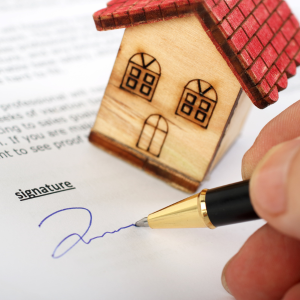
Understanding Texas Homeowners Insurance For Sellers
Understanding homeowners insurance is critical for generating profits when selling your Texas property. Homeowners insurance protects property owners financially against damage or loss.
In Texas, homeowners insurance often covers damage caused by natural disasters such as hurricanes and hailstorms and other risks such as fire and theft. To ensure you are sufficiently protected while selling your home, carefully check your policy and consider any additional coverage that may be required.
Some purchasers may need confirmation of homeowners insurance before closing, highlighting the importance of sellers understanding their coverage. By becoming informed about Texas homeowners insurance, you can effectively manage the home-selling process and maximize your profits.
The Importance Of Homeowners Insurance When Selling A House In Texas

When selling a property in Texas, it is critical to understand the value of homeowners insurance. This sort of insurance covers both the homeowner and the potential buyer.
Extreme weather events in Texas, such as hurricanes and tornadoes, can inflict considerable damage to properties, making coverage necessary in an unforeseen emergency. In addition, homeowners insurance can cover any potential issues that may emerge throughout the selling process.
Sellers without sufficient insurance may face financial implications if someone is injured on their property. When selling a property in Texas, it’s important to understand homeowners insurance to maximize profits and safeguard against any hazards and liabilities.
How To Choose The Right Homeowners Insurance For Your Texas Property
Selecting appropriate homeowners insurance is essential for optimizing profits when selling your Texas residence. However, determining the most suitable coverage for your property can be challenging due to the many available alternatives.
Initially, ensure comprehension of Texas’s legally mandated coverage types and quantities. Subsequently, evaluate supplementary coverage alternatives that may safeguard your investment and enhance its worth.
Ensure you compare quotes from many insurance providers to secure optimal rates and coverage for your property. Prior to making a decision, it is essential to assess each insurance company’s reputation and financial stability.
By implementing these measures, you can secure appropriate homeowners insurance for your Texas property, which will provide you with reassurance and potentially enhance your profits upon sale.
Factors To Consider When Selling A House And Changing Homeowners Insurance In Texas

When selling a residence in Texas, certain aspects regarding the alteration of homeowners insurance must be considered. The initial consideration is the nature of coverage required for your particular property and its geographical location.
If your residence is in a flood-prone region, you may require supplementary flood insurance. Evaluating your existing coverage and consulting with your insurance agent regarding any required modifications is essential.
Another consideration is the expense of the new insurance policy and its impact on your overall income from the house sale. Furthermore, remain cognizant of any possible discrepancies in coverage between your previous insurance and the new one.
Ensuring that all facets of your home are sufficiently addressed throughout the transition phase is essential. Finally, evaluate any possible discounts or savings for which you may qualify with a new insurance provider.
By meticulously evaluating these aspects, you can optimize your profits while guaranteeing that your Texas property is adequately insured throughout the selling process.
Navigating Homeowners Insurance Requirements For Selling A House In Texas
Understanding the requirements for homeowners insurance in Texas is critical for maximizing profits when selling your home. It is your responsibility as a homeowner to ensure your property is properly insured while it is for sale.
This protects you against potential liability issues and gives potential buyers peace of mind. In Texas, homeowners insurance typically covers damage to the house’s physical structure, personal items, and liability for injuries that occur on the property.
Before listing your home for sale, you should carefully evaluate your insurance to ensure it meets all state requirements. Working with a reputable insurance agent helps assure inexpensive and appropriate coverage.
Properly handling homeowners insurance requirements can prevent hassles and delays in the selling process, thus increasing earnings from your Texas home sale.
Tips For Saving Money On Homeowners Insurance While Selling A House In Texas

Make the most of your Texas home sale by learning all about homeowners insurance. You can save money on home insurance by getting quotes from multiple companies.
Doing this lets you get the best service at the best price. You can also increase your deductible to lower your rates.
You can also save money by combining your home insurance with other types of insurance, like car or life. Installing a security system or updating your roof are two other home changes that might help you save money.
Final tip: Check your policy often and make any necessary changes to ensure you are getting the best coverage for selling your Texas home.
The Role Of Homeowners Insurance In Protecting Your Investment During The Sale Process
When selling your Texas home, it is critical to understand the role of homeowners insurance in preserving your investment during the transaction. Homeowners insurance covers any damage or loss to your property while it is on the market.
This can include natural calamities, theft, and liability claims from potential buyers or guests. Without adequate insurance coverage, you may face considerable financial loss if something happens to your home during selling.
With comprehensive homeowners insurance coverage in place, you can be confident that your investment is protected and concentrate on maximizing earnings from the sale of your Texas property.
Common Mistakes To Avoid When Buying Or Updating Homeowners Insurance While Selling A House In Texas

When selling a property in Texas, homeowners insurance is an important consideration. However, many sellers make typical mistakes while purchasing or changing their insurance coverage, which can result in higher long-term costs.
One mistake to avoid is failing to conduct thorough research and compare different insurance companies. Searching for the lowest pricing and coverage options that meet your requirements is critical.
Another mistake is underestimating your home’s value and not obtaining enough insurance. This puts you at risk of financial loss if something unexpected happens.
Additionally, the policy must be completely reviewed to understand what is and is not covered and any exclusions or limitations. Avoid canceling your current policy before obtaining a new one, as this may leave you without coverage during the selling process.
Understanding these frequent mistakes and taking the appropriate safeguards will allow you to optimize your profits when selling your Texas home with the proper homeowner’s insurance.
Understanding The Fine Print And Coverage Options For Sellers’ Homeowners Insurance In Texas
When selling your Texas home, recognizing the many coverage options for homeowners insurance is critical to maximizing profits. Homeowner insurance can be complex and intimidating, especially regarding the fine print.
As a seller, you should carefully check your policy to ensure you have the appropriate coverage for your needs. This involves understanding what your insurance covers, such as damage caused by natural disasters or accidents, and any additional options available for purchase.
It’s also crucial to understand any limitations or exclusions in your policy that may affect the sale of your house. Understanding your homeowners insurance allows you to sell your house successfully and maximize your investment.
What Happens If You Don’t Have Adequate Homeowners Insurance Before Selling Your House In Texas?

It’s critical to comprehend how homeowners insurance contributes to maximizing profits while getting ready to sell your home in Texas. Without enough insurance, you can risk losing a sizable chunk of your prospective income.
Insufficient insurance coverage may lead to expensive repairs and postpone the selling process in the event of a disaster or other unanticipated events. Before listing your home for sale, it is imperative that you evaluate your policy and make sure it offers enough coverage for your needs.
This will guard against any financial failures for you and potential buyers during the selling process.
Exploring Additional Coverage Options: Flood, Windstorm, And Liability Policies For Sellers In Texas
When selling a property in Texas, homeowners insurance is essential to protect both the seller and the potential buyer. While conventional plans cover common hazards like fire and theft, sellers should be aware of the additional coverage alternatives.
Flood and windstorm insurance is especially important for residences in disaster-prone areas. These plans can offer financial assistance in the event of water or wind-related damages.
Sellers should also consider liability insurance, which covers any potential accidents or injuries on the property during the selling process. By knowing and investing in these additional coverage choices, sellers can increase their earnings while avoiding unexpected charges and providing buyers with peace of mind.
How Changes To Your House’s Value Can Affect Your Homeowner’s Insurance Premiums When Selling In Texas

When selling your Texas home, you must understand how changes in its value can affect your homeowner’s insurance premiums. Your home’s worth impacts insurance coverage and costs.
If you have made changes or renovations that enhance the value of your house, you may need to adjust your coverage. However, if your home’s worth has decreased due to variables such as age or location, you may be able to reduce your premium.
When selling your home, evaluating and renewing your homeowner’s insurance policy is critical to ensure you are sufficiently covered and are not overpaying for needless coverage.
Staying Protected During The Closing Process: Tips For Managing Your Homeowners Insurance While Selling A House In Texas

Knowing how homeowners insurance works is important if you sell your home in Texas. During the sale, this insurance covers you and your property, and it is very important to handle it correctly to avoid any problems or financial losses.
One way to stay safe during the closing process is to review your policy carefully and make sure it covers any updates or changes that need to be made, like a change in ownership or the property being empty. Additionally, if you think it’s necessary, consider raising your coverage to ensure you’re fully protected during the selling process.
Additionally, it is important to ensure that your insurance payments are current and that you give your insurance company all the information they need, such as proof that the property has been fixed or maintained. If you manage your homeowner’s insurance correctly, you can get the most money from selling your Texas home and avoid the most stressful situations.
The Impact Of Location: Understanding Differences In Homeowners Insurance Rates Across Different Areas Of Texas
When selling your home in Texas, understanding how location affects homeowners insurance premiums is critical for optimizing profits.
Homeowners insurance premiums in Texas vary greatly based on natural catastrophe risk, crime rates, and property values.
For example, coastal places in Texas may have higher insurance premiums due to an increased danger of hurricanes and flooding. Still, rural areas may have cheaper rates due to lower property values and fewer claims.
Homeowners should research and compare insurance rates in their unique area to guarantee they receive the greatest bargain when selling their home.
Dealing With Lapse Or Cancellation Of Your Current Policy While Trying To Sell A House In Texas

Understanding homeowners insurance is critical when selling your Texas property to maximize profits. Having a lapsed or canceled coverage during the selling process can add stress and problems.
It is critical to understand why your insurance may have lapsed or been canceled, such as missed payments or failure to comply with specific conditions. In these cases, contacting your insurance provider and trying to resolve the problem as quickly as possible is essential.
Consider looking into different insurance choices that better meet your needs and give coverage during selling.
Planning Ahead: What To Do With Any Remaining Time Left On An Active Policy When Selling A House In Texas
As a Texas homeowner, you must plan ahead of time when selling your property. This includes determining what to do with the remaining time on your active home insurance policy.
Many homeowners may be unaware that they can transfer their insurance policy to the new homeowners, allowing them to maintain coverage until the term expires. Some insurance firms may also offer a return for the unused portion of the policy if it is terminated early.
It is critical to check your policy and contact your insurance provider to decide the best action to maximize earnings while maintaining adequate coverage during the house-selling process.
How Can Homeowners Insurance Be Cancelled When A Home Is Sold?
If you want to sell your Texas home, you must know how to cancel your homeowner’s insurance correctly. This will not only ensure that you do not overpay for coverage, but it will also optimize your selling profits.
To cancel your homeowner’s insurance, call your insurer and advise them of the imminent sale. They will likely have specific cancelation steps and conditions, so follow them completely.
Consider getting fresh insurance quotes to locate a more inexpensive choice for your home buyer. By understanding the process and following the appropriate steps, you may easily cancel your homeowner’s insurance and maximize your profits while selling your Texas house.
What Happens If Your Homeowners Insurance Drops You And You Have A Mortgage?
When selling your Texas home, increasing earnings is the first goal. However, one important factor many homeowners ignore is their homeowner’s insurance.
If your insurance company leaves you while you still have a mortgage on your home, it can significantly impede your ability to sell and potentially result in financial losses. As a result, understanding the intricacies of homeowners insurance and how they relate to selling your house is critical.
From coverage possibilities to the potential penalties of being dropped by your insurance carrier, studying this topic thoroughly will allow you to make informed decisions and preserve your earnings when selling your Texas home.
How To Cancel Home Insurance When Moving?
Comprehending homeowners insurance to optimize profits when your Texas residence is being sold is imperative.
However, the issue of how to cancel your home insurance may arise once you have successfully sold your home and are prepared to relocate.
To prevent potential issues or financial losses, it is crucial to comprehend the steps involved in canceling your homeowners insurance, which can be straightforward.
Adhere to these guidelines and tips when transferring to cancel your home insurance without any complications or inconvenience.
Do You Get A Refund If You Cancel Homeowners Insurance?
Understanding your homeowner’s insurance coverage is critical for increasing profits when selling your Texas home. Many homeowners may be asking if they can get a refund if they cancel their home insurance. The answer depends on the precise terms of your policy.
In most situations, if you cancel before the insurance expires, you may be eligible for a prorated refund for the remaining coverage period. However, cancellation fees and administrative costs may impact the return you receive.
It is critical to carefully check your policy and consult your insurance provider to completely understand any potential refunds or fees related to canceling your homeowner’s insurance.
Read on to learn how to sell a house in Texas. The tips and guidelines are applicable statewide, including cities like Dallas, El Paso, Houston, Austin, San Antonio, Fort Worth, and nearby regions. For personalized assistance, Contact Us at (469) 765-3669.
Additional Resources For Texas Sellers
| [ | |||||
| “ | ] | “ | ] |


